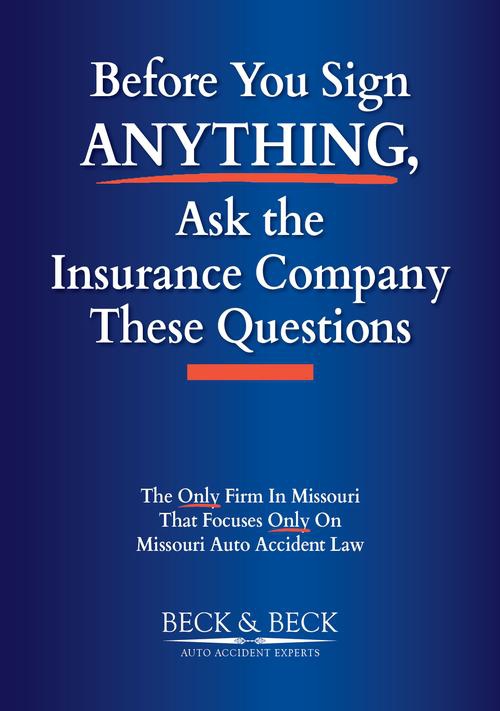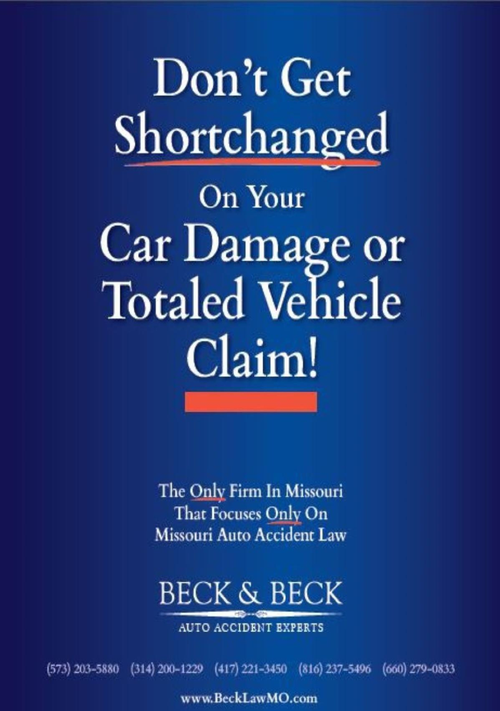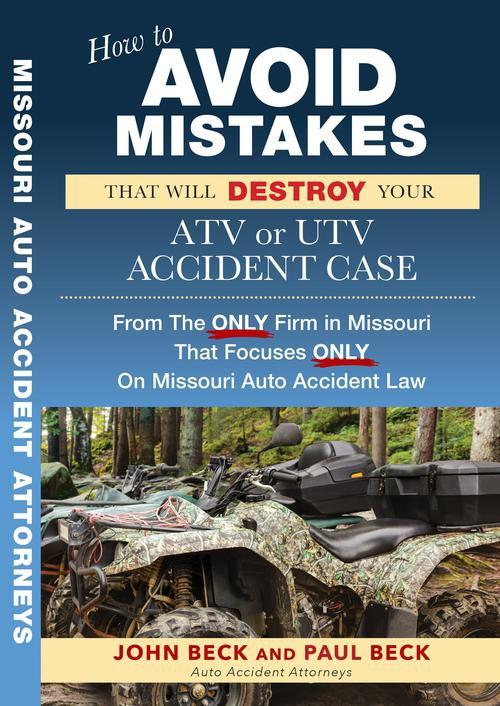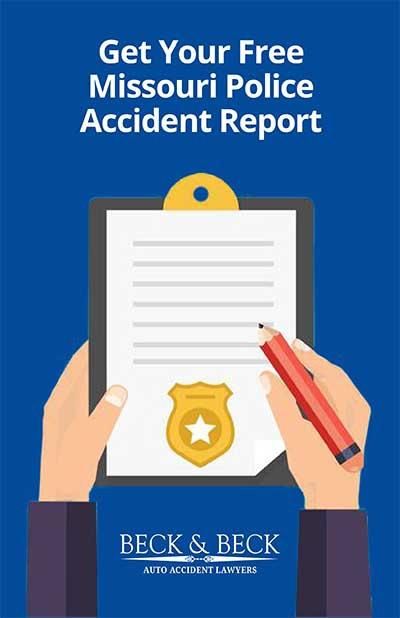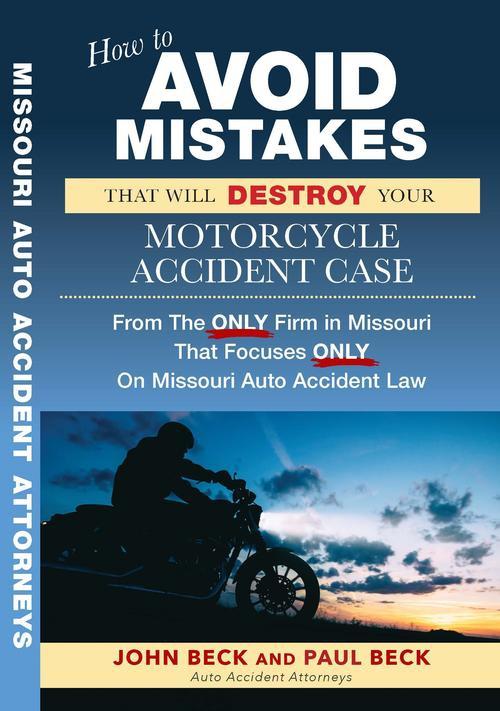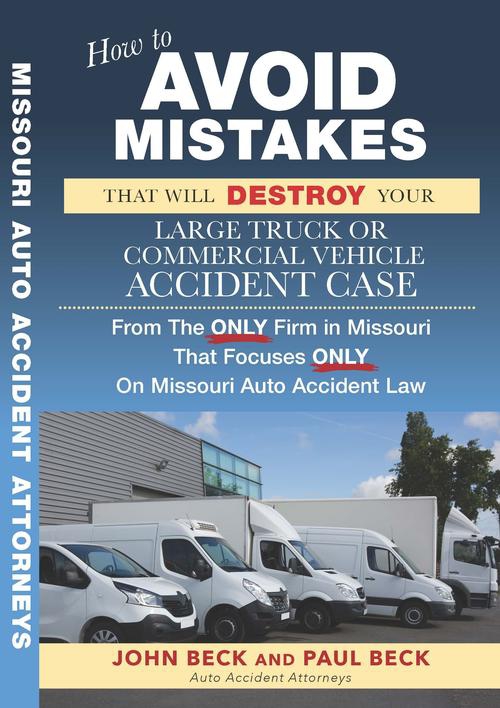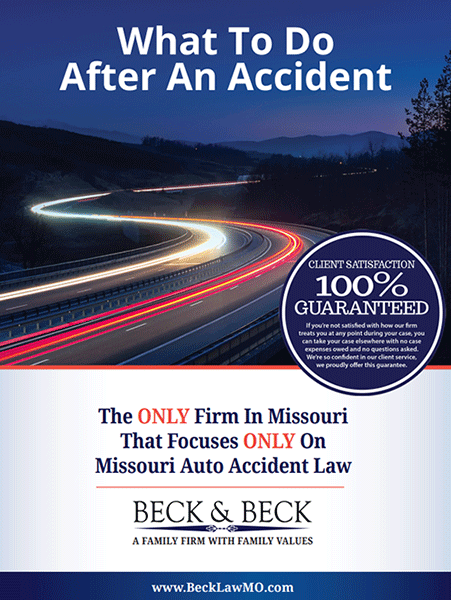Almost everyone remembers a car accident they were involved in a little differently. While sometimes this is because drivers in Missouri typically believe that they are good drivers and thus aren’t at fault, it can also be the result of people seeing the accident from different angles.
These conflicting memories create a problem when filing an insurance claim, though. The insurance company wants to definitively know which party was at fault before it pays anything. When there are conflicting viewpoints about whose actions caused the car accident, it slows down the process and potentially results in lawsuits.
You would hope that insurance companies, which have decades of experience determining who is responsible for a car accident, would get the right answer most of the time.
Unfortunately, this isn’t the case. Insurance companies have a financial incentive to blame specific parties after an accident. That can result in an insurance company placing the blame on you, even when you were the innocent party.
“I’m being blamed for a car accident that wasn’t my fault” is a gut-wrenching thought to have. The good news is that there are options, even once you find yourself in the crosshairs of an insurance company.
Some of those options may be time-consuming, and you will usually be better off if you prevent an insurance company from unfairly blaming you in advance. Regardless, the better you understand why this happens, the less likely you are to suffer negative consequences from this situation.
Continue with this article by the award-winning St. Louis car accident attorneys at Beck & Beck Missouri Car Accident Lawyers to learn more.
What to Do if You Are Being Unfairly Blamed For a Car Accident That Was Not Your Fault
If you are being unfairly blamed by an insurance company or another driver, you need to protect yourself. This means that you should collect as much evidence as possible that the other driver was responsible and refuse to accept any settlement that you know is lower than it should be.
It is best to collect evidence as soon as the accident happens. If you have pictures from the accident scene and contact information from any witnesses, you may have evidence that the insurance company doesn’t have or that it is trying to conveniently ignore.
Similarly, you should preserve all medical records in case an insurance company tries to claim your injuries occurred before the accident.
You should probably also contact an experienced car accident lawyer as soon as possible. While insurance companies have appeals processes that you can attempt to navigate alone, they are stacked against the claimants. You will typically get much better results if you are represented by a top-rated auto accident attorney.
How Insurance Companies Determine Liability
When you are involved in a car accident in Missouri, state laws require you to report the accident in two situations. First, if the other driver was uninsured, you are required to report the accident to authorities right away. This includes hit-and-run accidents where you don’t know for certain whether the other party is insured.
You are also required to report an accident if any party is killed or injured or if property damage is more than $500. That last point means that you need to report almost every accident in Missouri.
If you have ever tried to get body work done to a vehicle, you probably realize that even the most minor body work usually costs more than $500. This means that you should be reporting just about any accident that is more than a fender bender.
The Importance of the Police Report in Determining Liability
When the police arrive at the scene of the accident, they create a police report detailing the crash site. This report includes diagrams of the accident scene and statements made by any parties involved in the accident.
From this police report, an insurance company gets information about who likely caused the collision and how the accident scene likely looked when the crash occurred. This is often one of the most important pieces of evidence when an insurance company tries to determine who is liable for an accident.
Insurance Investigators
Insurance companies don’t solely rely on police reports, though. While police officers should be unbiased, that doesn’t necessarily mean they fully documented the accident or came to the right conclusion. Police officers typically are more interested in getting everyone to safety than they are in identifying an at-fault party.
To get more information, insurance companies assign investigators to a claim. These individuals gather as much information as possible about the accident scene. Even though they usually start investigating well after the accident, they are trained at reconstructing a collision and determining what parts of stories are accurate.
Unfortunately, insurance investigators, unlike police officers, aren’t neutral. While they will interview all relevant parties and examine relevant physical evidence, they have a financial incentive to weigh evidence a certain way. This is how blame may be unfairly shifted to you.
How Blame May Be Shifted Onto You
The financial incentive is simple. Insurance companies, for all the complicated bureaucracy and convoluted policies, have a rather simple business model.
They make money by charging premiums. The more policies they sell and the more those policies cost, the more money the insurance company earns. However, those earnings are countered by expenses.
Typically, the most costly expense that any insurance company has is paying money to claimants. Every dollar paid to a claimant is deducted from the profits of the company.
Thus, the insurance company for the other driver has a significant financial reason to determine that you were at fault in the accident. If it can claim you were at fault, it can reduce your settlement or even deny it.
I’m Being Blamed for a Car Accident That Wasn’t My Fault
That is, unfortunately, the name of the game in many situations. Pass the blame and force the claimant to engage in a long and expensive battle to prove they deserve money. All too often, this results in claimants dropping their claims.
Frustratingly, the insurance company may not always be to blame, either. The other driver also has a financial incentive to push the blame on you. If they are identified as being responsible, their premiums will increase after the accident.
Thus, the other driver might lie about the events of the accident to avoid having those premiums increased. If their insurance company conducts only a cursory investigation and otherwise takes their claims at face value, your insurance claim could be denied inappropriately.
Even when the other driver is at fault, the right type of lie could reduce your settlement. For example, in Missouri, if you are uninsured, you can’t collect non-economic damages. The other driver might claim you are uninsured, and you might not realize that lie was limiting your compensation until it is too late.
Why Fault Matters in Missouri Car Accident Claims
Fault matters in a Missouri car accident because Missouri uses a simple car insurance system. Every driver is required to be insured, and the insurance policy for the at-fault driver pays compensation to everyone who is injured in the collision.
However, Missouri also uses a simple negligence principle: pure comparative negligence. Under this system, if multiple parties are partially responsible for your injuries, you receive compensation from those parties based on their percentage of fault.
This means that you can potentially get compensation from another party even if they are only 1% responsible for the injuries you suffered. They would only have to pay 1% of the total damages that you are due to receive, though.
Similarly, if you were 40% responsible for your injuries, your insurance company would be responsible for compensating you for 40% of your expenses related to your injury. Thankfully, there are usually only at most two responsible parties in most accidents.
Conflicts Over Percentages
Unfortunately, this creates another avenue for passing blame. When both parties are partially to blame, insurance companies often disagree about the exact percentage that each party is at fault. These disagreements can be very costly.
Imagine, for example, that your insurance company claims that you are 20% to blame for a $100,000 claim. It would pay you $20,000 and expect the other insurance company to pay the remaining $80,000.
However, if the other insurance company claimed you were 50% to blame, then it would only pay you $50,000. This leaves you $30,000 in the hole.
When insurance companies disagree about the percentage that you are responsible for, you might have to fight both of them to get them to agree. This can be even more frustrating than fighting a single insurance company. Unfortunately, you can’t accept a settlement from either one until they are both on the same page, potentially leaving you in debt.
Top Rated Auto Accident Attorneys in Missouri
The attorneys at Beck & Beck Missouri Car Accident Lawyers are not your typical auto accident lawyers. They grew up in Missouri and understand the community. When you come into our office saying, “I’m being blamed for a car accident that wasn’t my fault,” we’ll put you at ease.
We use our extensive experience in car accidents to help you get a leg up and avoid unfair blame. Contact our law firm today for more information about your options.

